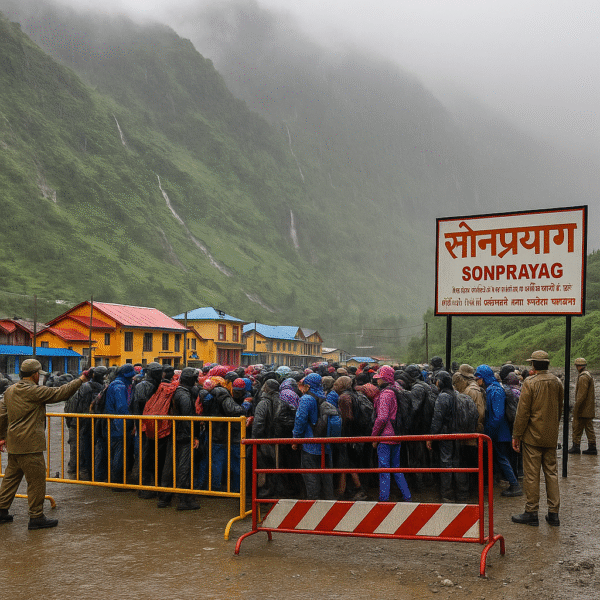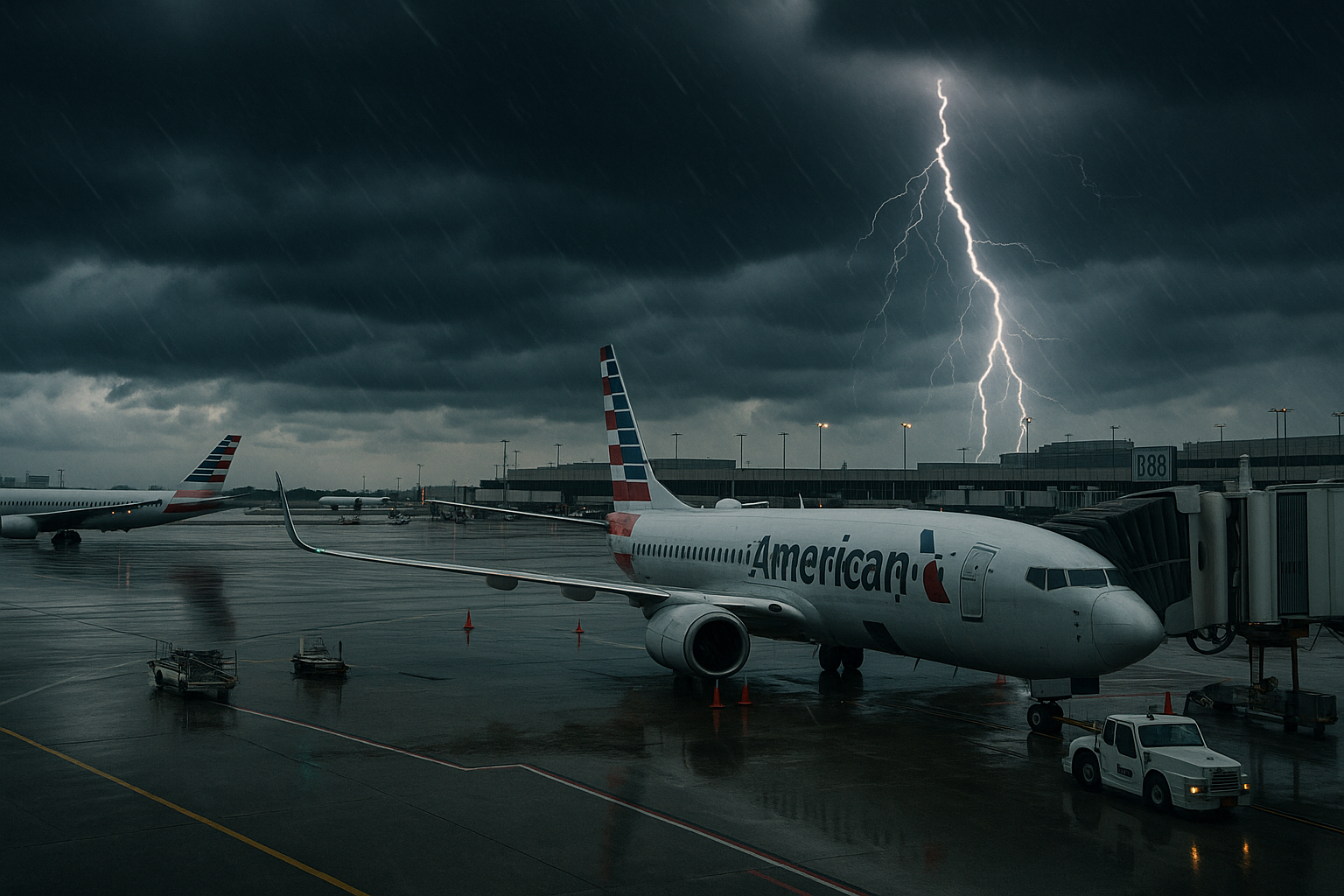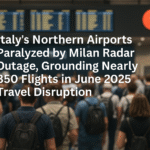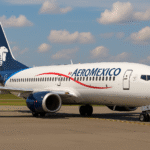Stormy Skies: American Airlines Faces Over 700 Weather-Induced Flight Disruptions Across U.S.
In the midst of peak summer travel season, American Airlines is battling significant operational disruption due to a wave of severe weather events sweeping across the United States. As of this weekend, over 700 American Airlines flights have been delayed or canceled at major domestic airports including Miami, Dallas, Charlotte, New York’s JFK, Chicago O’Hare, and more, leaving thousands of passengers facing extended wait times and rebooking challenges.
Nationwide Disruptions Affect Key Travel Hubs
American Airlines, one of the largest carriers in the U.S., has seen its network heavily impacted by widespread thunderstorms, strong winds, and torrential rain. Airports across both coasts and central U.S. have reported major slowdowns due to low visibility, tarmac restrictions from lightning strikes, and air traffic control holds.
At Dallas-Fort Worth International Airport (DFW)—a primary American Airlines hub—the airline reported 137 delays and 66 cancellations, totaling over 200 affected flights. Similarly, Charlotte Douglas International Airport (CLT) saw 183 total disruptions, with 139 delays and 44 cancellations, largely due to Southeast storms stalling flight movement.
East Coast Trouble: Miami, JFK, and Philadelphia Hit Hard
East Coast operations were no less strained. At Miami International Airport (MIA), a key gateway for international traffic, 97 American Airlines flights were disrupted. Passengers at Philadelphia International Airport (PHL) faced 58 flight interruptions as storms made takeoffs and landings difficult.
In New York, both LaGuardia (LGA) and John F. Kennedy International Airport (JFK) saw dozens of delays and cancellations. JFK’s long-haul international services were especially vulnerable, with 29 total disruptions affecting flights to Europe, Latin America, and the Caribbean.
Midwest and West Also See Ripple Effects
The Midwest experienced its share of travel misery, notably at Chicago O’Hare (ORD) where 87 American Airlines flights were delayed or canceled. Detroit Metro (DTW) and Minneapolis-St. Paul (MSP) followed closely with 84 and 78 disruptions respectively. Meanwhile, Salt Lake City International (SLC) reported 43 disruptions, and Los Angeles International (LAX), though less affected, still faced 2 delays due to residual weather effects reaching the West.
Florida Vacation Travel Heavily Impacted
Leisure travel hotspots in Florida suffered extensive delays. Orlando International (MCO) and Southwest Florida International (RSW) logged 42 and 22 disruptions, affecting families heading to popular attractions. Palm Beach International (PBI) and Jacksonville (JAX) also saw dozens of flight cancellations.
Additional Airports Affected
Other airports reporting major interruptions include Boston Logan (42 disruptions), Nashville (22 disruptions), Houston Bush Intercontinental (47 disruptions), and Cleveland-Hopkins (13 disruptions). Across the country, the cumulative impact has stretched airport resources thin and left passengers scrambling for alternate options.
Weather: The Primary Culprit Behind the Chaos
The core driver behind this nationwide disruption is the volatile summer weather pattern, bringing:
- Severe Thunderstorms: Disrupting airspace across central and eastern U.S., grounding flights for hours at a time.
- Lightning Delays: Airports such as Dallas and Chicago paused ground operations for safety, delaying departures and arrivals.
- Heavy Rainfall: Affecting visibility and runway conditions, particularly in Miami and New York.
- Strong Crosswinds: Especially at busy airports like Chicago O’Hare and Newark, causing delays in aircraft landing patterns.
American Airlines Responds with Contingency Plans
In response, American Airlines has activated its weather contingency protocols, including:
- Waiving change and cancellation fees for affected travelers
- Offering rebooking on alternate flights or routes
- Dispatching additional ground staff to assist stranded passengers
- Issuing regular alerts via mobile apps, airport screens, and social media
In an official statement, the airline apologized for the disruption and reassured passengers that every effort was being made to resume normal operations safely and efficiently.
Travelers Urged to Stay Informed
Travelers flying with American Airlines in the coming days are strongly advised to:
- Check flight status regularly via the airline’s mobile app or website
- Sign up for real-time flight alerts and gate changes
- Arrive early at the airport to allow extra time for check-in and security
- Prepare for possible overnight delays, especially at major hubs
Airports such as Dallas, Miami, and Philadelphia have activated additional customer service desks to handle passenger inquiries and rebooking requests. Despite the large number of delays, the airline has reported no major safety incidents.
Looking Ahead: Weather-Linked Flight Disruptions May Persist
With more storms forecasted for the Midwest and East Coast into the early part of next week, travelers should remain alert. The National Weather Service has warned of continued thunderstorm activity, particularly in the Great Lakes and Northeast regions.
This wave of airline disruptions once again highlights the vulnerability of modern aviation to weather extremes—an issue that grows more pressing during the busy summer season.
Conclusion: A Call for Patience and Planning
As American Airlines works to stabilize its schedule, passengers are encouraged to remain flexible, stay informed, and plan for potential delays. While frustrating, such weather-related interruptions are often necessary to ensure flight safety in turbulent conditions. For now, skies may be stormy—but with coordinated recovery efforts, smoother travels lie ahead.
For more travel news like this, keep reading Global Travel Wire
















